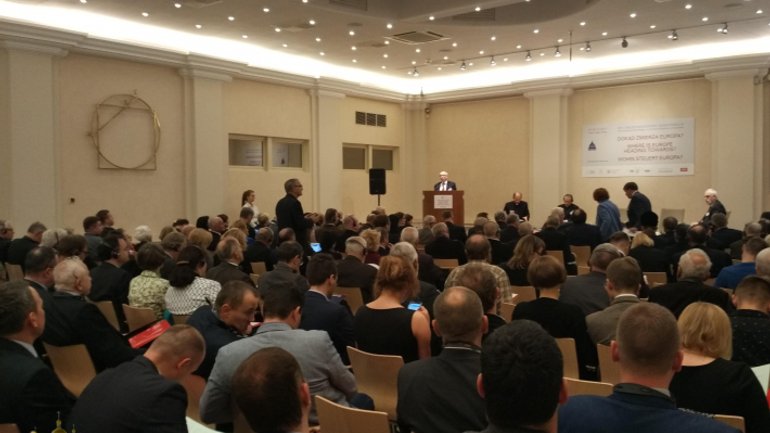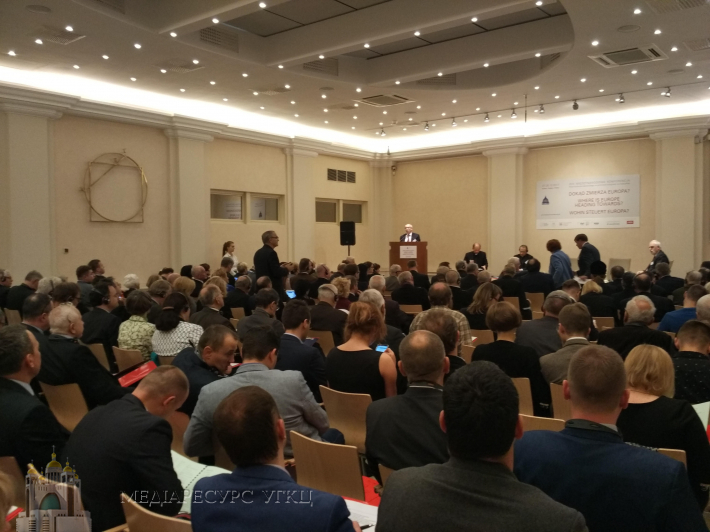Role of the Church in European integration process discussed in Krakow

“Where is Europe going?” - representatives from different countries and different denominations that have already gathered in Krakow (Poland) for the regular seventeenth conference themed “The role of the Church in the process of European integration” are pondering over this issue from October 26 to October 28. It is reported by the Department of Information of the UGCC.

At the beginning of the meeting, speeches were delivered by representatives of the Catholic Church, European Parliament and representatives of the Polish Government. Congratulations to the participants of the conference were also conveyed by Antonio Tajani, President of the European Parliament and Vice-President of the European Commission. In the follow-up, delegates from all over Europe began discussing the challenges the European community faces today.
With the blessing of His Beatitude Svyatoslav, Igor Shaban, chairman of the UGCC Commission to for Promotion of Christian Unity is taking part in the conference. He said that during this two-day conference, it is planned to answer the question: does modern Europe need Christian leaders, can modern Europe defend its identity based on Christian roots and what are the solutions to the crisis today offered by the Church?
An important task of today's European community, according to Fr. Igor “is to find answers to the question of how Christians should respect their European identity, their roots, which, despite some weakening, have not lost their value and still form the foundation of a future Europe.”









